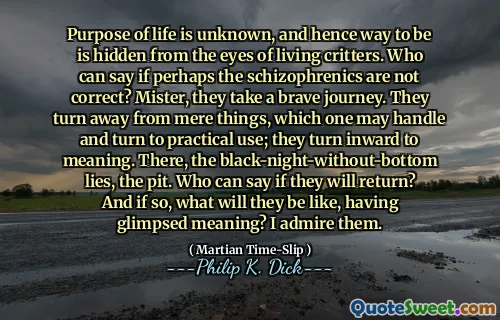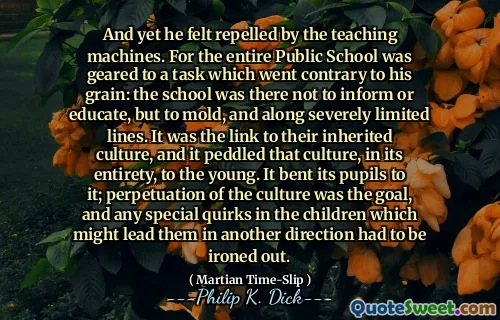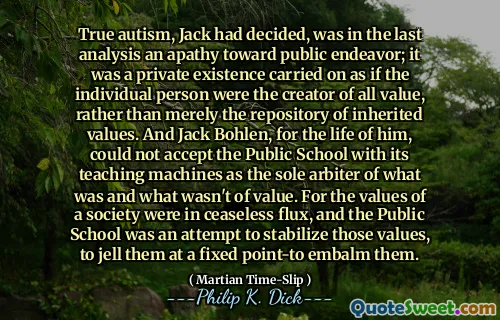Martian Time-Slip, a science fiction novel by Philip K. Dick, explores the complex themes of time perception and human psychology against the backdrop of Mars colonization. The story is set in a future where Mars is being developed for human habitation, highlighting the challenges and societal issues faced by its inhabitants, including economic disparity and mental illness. The narrative centers around a man named Jack Bohlen, who grapples with his own reality while interacting with a group of characters that showcase the diverse struggles of Martian life.
As Bohlen navigates through the unique landscape of Mars, he encounters a mentally ill boy named Manfred, who possesses the ability to perceive time differently. This ability creates a connection between the characters and serves as a catalyst for the exploration of alternative realities. Dick delves into the concept of time as a fluid and subjective experience, presenting the idea that one's perception of reality can drastically alter one's existence. Through interactions with Manfred, Bohlen’s understanding of time and reality shifts, prompting readers to question the nature of their own experiences.
The novel not only touches upon themes of psychology and reality but also critiques societal norms and systems. It poses questions about the nature of consciousness and individual agency in a world dominated by bureaucratic control and environmental challenges. Dick's writing illustrates the potential for human connection and understanding amidst adversity, culminating in profound philosophical reflections that resonate long after the story ends. Martian Time-Slip remains a thought-provoking work that encourages readers to reflect on their perceptions of time and reality within the context of a rapidly changing world.
More »
Today Birthdays
1887 -
Robinson Jeffers
1864 -
George Washington Carver
1936 -
Stephen Ambrose
1953 -
Pat Benatar
1949 -
George Foreman
1945 -
Rod Stewart
1936 -
Robert Woodrow Wilson
1938 -
Donald Knuth
1974 -
Hrithik Roshan
1956 -
Antonio Munoz Molina
1980 -
Sarah Shahi
1936 -
Al Goldstein
1939 -
David Horowitz
1955 -
Michael Schenker
1986 -
Abbey Clancy
1959 -
Chris Van Hollen
1989 -
Emily Meade











